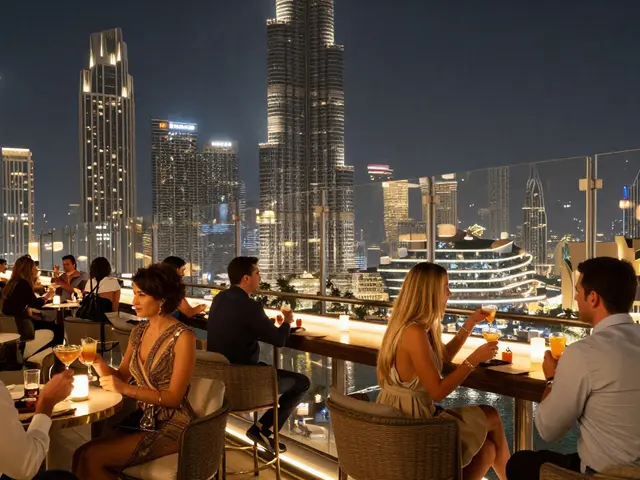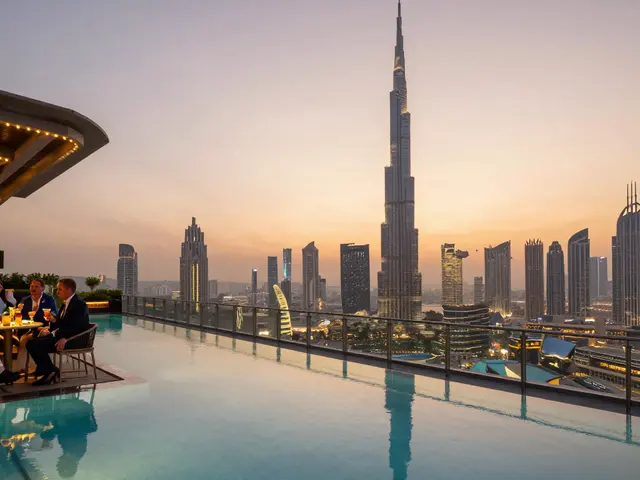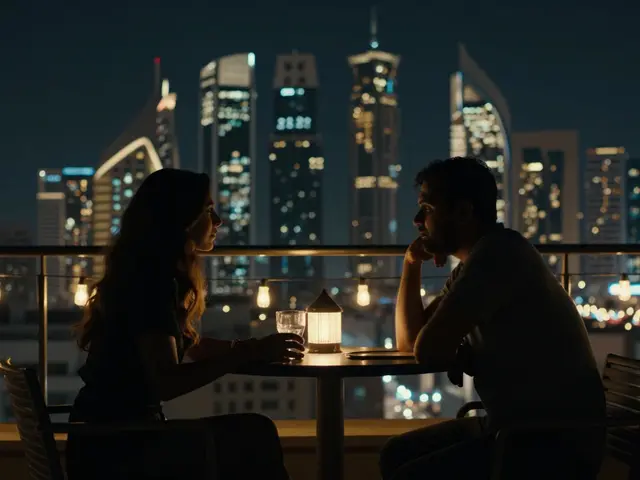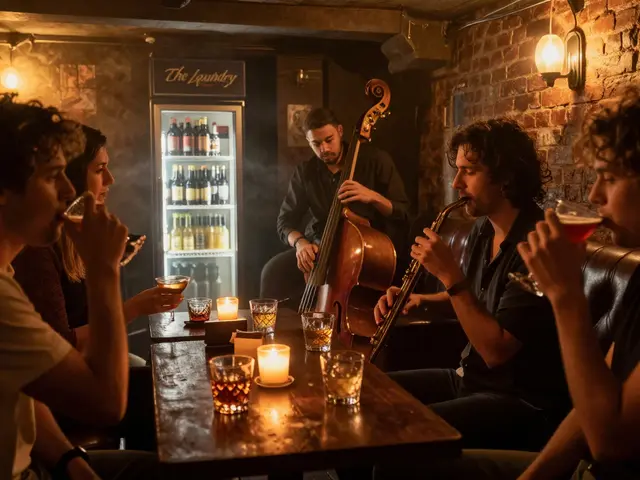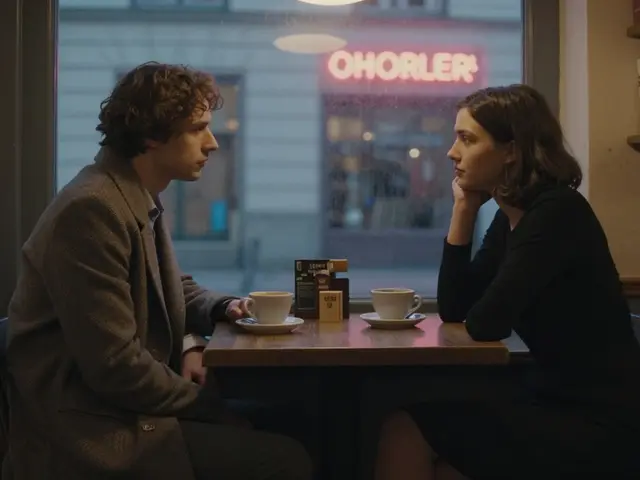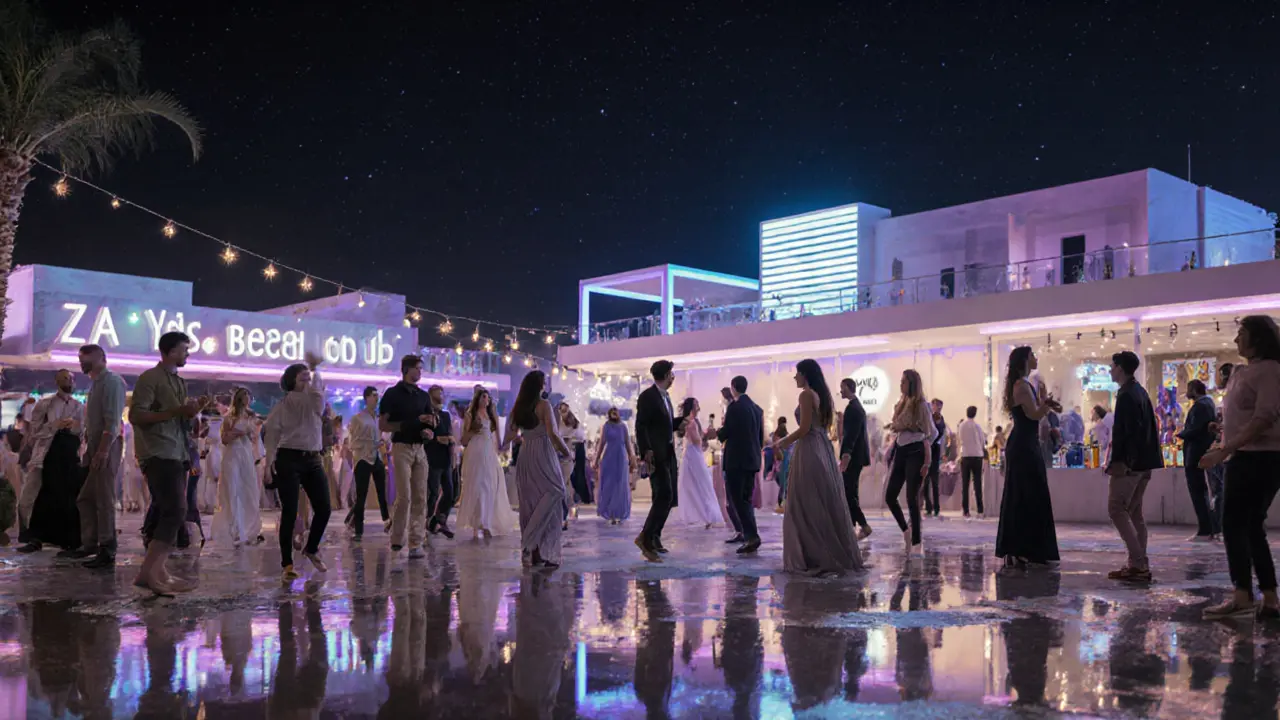
Abu Dhabi isn’t just about grand mosques and desert safaris. When the sun sets, the city transforms into a vibrant hub where music, dance, and culture come alive in ways most visitors never expect. Forget the quiet image you might have heard - Abu Dhabi’s nightlife is bold, diverse, and deeply rooted in local tradition, even as it embraces global rhythms.
Where the Beats Are Born
Start your night at Yas Island, the beating heart of Abu Dhabi’s modern nightlife. This is where international DJs spin tracks at venues like Studio 1 and Yas Beach Club. The crowd? A mix of expats, tourists, and locals who know how to move. You won’t find wild partying like in some global cities, but you’ll find precision - crisp lighting, curated playlists, and a vibe that’s more upscale lounge than chaotic club.
Don’t expect 24/7 partying. Most clubs close by 2 a.m., and alcohol is served only in licensed venues. But that restraint adds to the appeal. There’s no noise pollution, no rowdy crowds, just well-managed energy. The music leans heavily on electronic, house, and Arabic fusion. Look for nights themed around Emirati beats - think Khaleeji rhythms mixed with modern basslines.
Dance That Tells a Story
Abu Dhabi’s dance scene isn’t just about shaking your hips to a beat. It’s about heritage. Head to Al Qasba or the Etihad Museum courtyard on weekends, and you might catch a live performance of Ayyala, the traditional Emirati dance performed by men in white thobes, wielding sticks in rhythmic unison. It’s not a tourist show - it’s a living tradition passed down through generations.
Women’s dance is equally powerful. The Razfa - a rhythmic, hand-clapping dance often performed at weddings - sometimes appears at cultural festivals like the Abu Dhabi Festival. These aren’t staged for cameras. Locals invite visitors to watch, sometimes even join in. You’ll see older men clapping in perfect time, teens learning the steps, and children mimicking their elders. It’s culture in motion, not performance.
Culture That Doesn’t Wait for Daylight
Abu Dhabi’s cultural offerings don’t shut down after sunset. The Manarat Al Saadiyat hosts late-night art openings where contemporary Emirati artists display work inspired by desert landscapes, maritime history, and urban change. These events often include live oud music and poetry readings in Arabic - sometimes translated for guests.
At Al Mina Souq, the night market comes alive after 7 p.m. Vendors sell handwoven textiles, frankincense, and silver jewelry. The air smells of cardamom coffee and grilled lamb. You’ll hear Arabic pop songs playing softly from speakers, and families gathered on low stools, sharing stories over sweet tea. This isn’t a tourist trap. It’s the real pulse of the city.
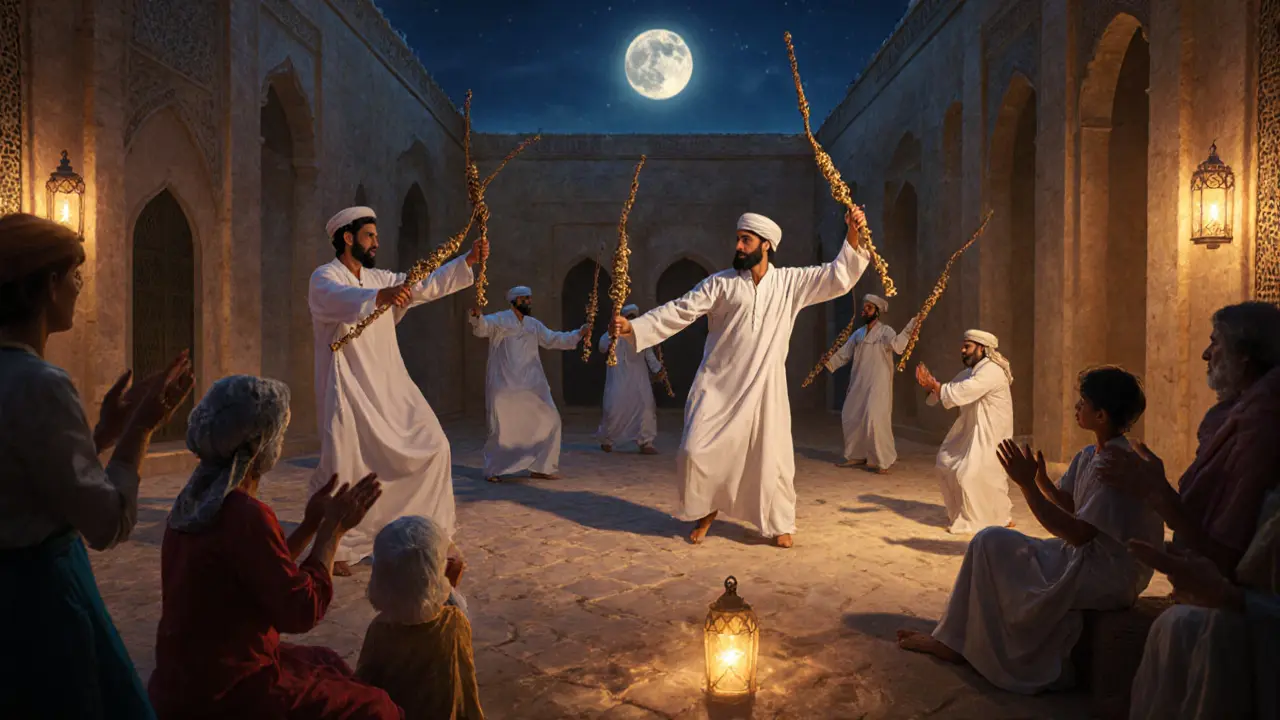
Where to Drink, Where to Sip
Alcohol is available, but it’s not everywhere. Stick to hotels like St. Regis Abu Dhabi, Four Seasons, or W Abu Dhabi - they have licensed bars and lounges. Try 360 Lounge at the W for skyline views and craft cocktails with a Middle Eastern twist - think rosewater gin or date syrup old-fashioned.
For something quieter, visit Al Maha Bar at the Emirates Palace. It’s elegant, dimly lit, and serves traditional Emirati drinks like gahwa (Arabic coffee) and laban (buttermilk). No alcohol, no music - just conversation, soft lighting, and the hum of the city outside.
What Makes Abu Dhabi Different
Compared to Dubai, Abu Dhabi’s nightlife feels more intentional. There’s less flashing neon, fewer bottle service crowds, and no rooftop parties that last until dawn. Instead, you get depth. A night here might start with a jazz set at La Petite Maison, move to a traditional dance performance, and end with a quiet walk along the Corniche, watching the lights of the Sheikh Zayed Grand Mosque shimmer across the water.
The city doesn’t chase trends. It blends them. You’ll hear a DJ remixing a 1970s Emirati folk song with a deep house beat. You’ll see a young Emirati woman in a designer abaya dancing to Arabic trap. This isn’t cultural appropriation - it’s evolution. And it’s happening in real time, right under your feet.
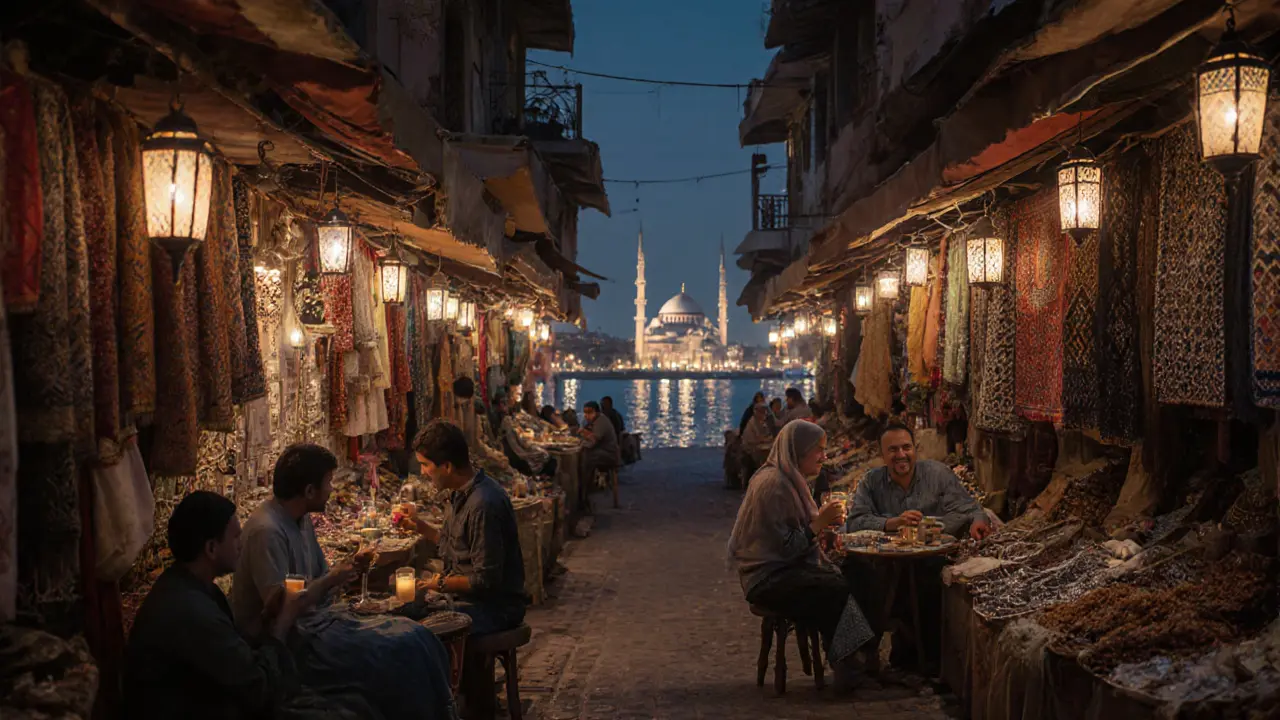
What to Bring, What to Skip
Don’t come expecting jeans and sneakers for every venue. Many upscale spots have a smart-casual dress code. Men should avoid shorts after dark. Women aren’t required to cover up, but modesty is respected - think knee-length dresses or long sleeves.
Bring cash for small vendors at the souqs. Credit cards work at hotels and clubs, but not always at the night market. And always check event schedules. Many cultural performances happen only on weekends or during festivals like Abu Dhabi Art or Yasalam after New Year’s.
When to Go
The best time for Abu Dhabi nightlife is October through March. Temperatures drop below 30°C, making outdoor spaces like the Corniche and Al Mina Souq comfortable. Summer nights are hot and quiet - most locals head to cooler places like Fujairah or the mountains. Don’t plan a big night out in July or August unless you’re okay with closed venues and empty streets.
What You Won’t Find
You won’t find strip clubs, underground raves, or 24-hour convenience stores selling alcohol. Abu Dhabi doesn’t cater to every kind of nightlife. That’s the point. It’s not trying to be Las Vegas or Berlin. It’s carving its own identity - one where music honors roots, dance tells stories, and culture stays central, even after dark.
Is Abu Dhabi nightlife safe for tourists?
Yes, Abu Dhabi is one of the safest cities in the world for tourists at night. Police presence is visible, streets are well-lit, and most venues have security. As long as you respect local norms - no public drinking, no public displays of affection, and dressing modestly - you’ll have no issues.
Can I go out without a visa?
If you’re visiting on a tourist visa (which most travelers get on arrival), you’re allowed to enter licensed venues and enjoy nightlife. No special permit is needed. Just carry your passport or Emirates ID if you’re a resident.
Are there any free cultural events at night?
Yes. The Abu Dhabi Department of Culture and Tourism hosts free outdoor performances during festivals like the Abu Dhabi Festival and Al Ain Desert Festival. Look for events at Al Qasba, the Heritage Village, or the Corniche - they often run until 10 p.m. and include music, dance, and storytelling.
What’s the best way to get around at night?
Ride-hailing apps like Careem and Uber operate 24/7 and are reliable. Public buses stop running after midnight, so don’t rely on them. Taxis are metered and safe. If you’re staying on Yas Island, many hotels offer shuttle services to major venues.
Can I take photos at cultural events?
Always ask first. At formal performances like Ayyala or traditional weddings, some families prefer not to be photographed. In public cultural zones like Al Mina Souq or Heritage Village, photography is usually fine unless signs say otherwise. Avoid photographing people without permission - it’s considered disrespectful.
Do I need to book tickets for nightlife events?
For clubs and bars, no - it’s usually walk-in. But for cultural performances, concerts, or festival events, booking ahead is essential. Events like the Abu Dhabi Festival sell out weeks in advance. Check the official Abu Dhabi Tourism website or the venue’s social media for schedules.
If you want to experience Abu Dhabi beyond the postcard views, stay out after dark. The city doesn’t sleep - it sings, dances, and tells stories. And if you listen closely, you’ll hear the past and the future speaking at the same time.

